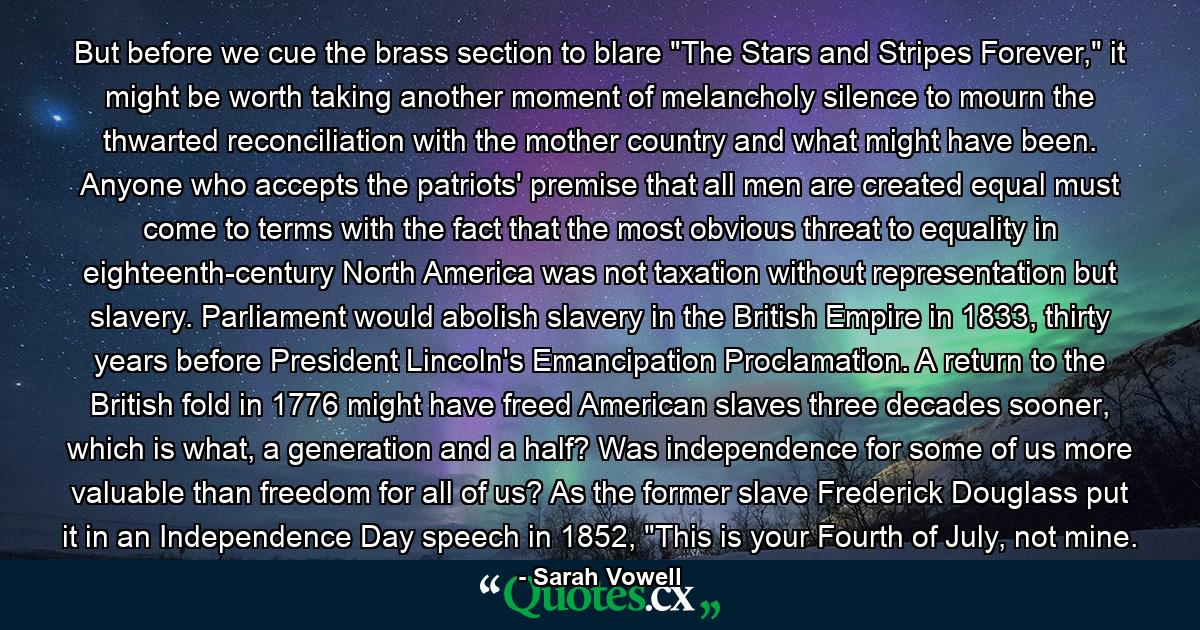But before we cue the brass section to blare “The Stars and Stripes Forever,” it might be worth taking another moment of melancholy silence to mourn the thwarted reconciliation with the mother country and what might have been. Anyone who accepts the patriots’ premise that all men are created equal must come to terms with the fact that the most obvious threat to equality in eighteenth-century North America was not taxation without representation but slavery. Parliament would abolish slavery in the British Empire in 1833, thirty years before President Lincoln’s Emancipation Proclamation. A return to the British fold in 1776 might have freed American slaves three decades sooner, which is what, a generation and a half? Was independence for some of us more valuable than freedom for all of us? As the former slave Frederick Douglass put it in an Independence Day speech in 1852, “This is your Fourth of July, not mine.
